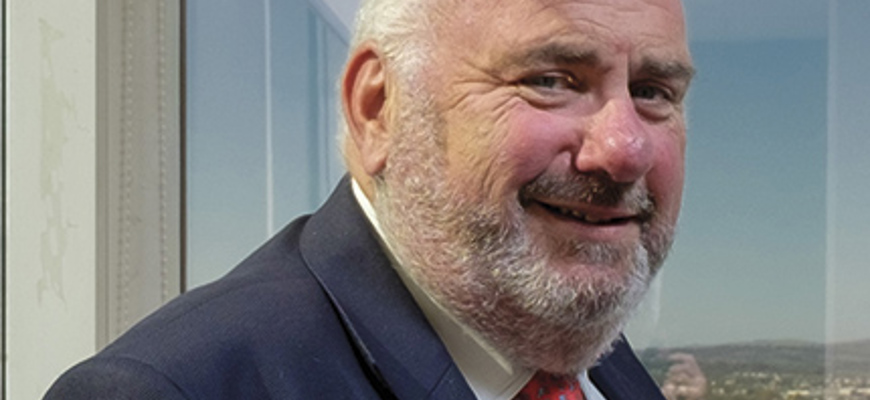Second time around

Cross-border mergers involving the larger Scottish legal firms have become almost commonplace. But the regulatory systems are very different, and with them, most importantly, the possibilities for attracting investment. How does that affect Scottish practices with ambitions towards wider horizons?
An interesting case study is HBJ Gateley, reborn this month as Addleshaw Goddard, after merging with the firm that has grown from Northern England roots to become a significant international presence. But HBJ previously had a close connection with the practice that is now Gateley plc, which recently reported strong results less than two years after becoming the first UK law firm to achieve a flotation. So what drove the changes?
“As you know, in Scotland we can’t have external investment at all, far less a majority that is outwith the hands of solicitors,” Malcolm McPherson, HBJ Gateley’s senior partner, replies. “That was Gateley’s aim, and I would say it’s gone pretty well for them. They’re the first and they get the advantage that comes from that. When that move was made public, it became clear we were not a single firm. We were very closely linked, but it was a verein, not a full merger.” (That is, separate profit centres with no profit-sharing arrangement.) “And at that point we started to get approaches from English and US firms. We spoke to them because the Gateley plc and HBJ Gateley relationship had become less straightforward because of the different ownership structures, and it felt like the right time to rethink the future of our business.”
Events might have taken a different course. “The aim had always been in the longer term to merge fully. There was a hiccup along the line with the recession in 2007. But for that the merger would probably have happened then.”
And if ABS had since become operational in Scotland? “That may very well have been the case. You can’t say for certain, but our early time working with Gateley was very successful for us, and for them. So it was something we would definitely have considered, and perhaps even later. But ultimately, once they had made the decision to press on with the IPO, it became more difficult to do any sort of final deal.”
It wasn’t long before suitors came calling – probably 11 or 12 in all. What made Addleshaws the right fit? “I think if you look at their business from afar, it appeared to fit well with ours. Some of the firms that approached us didn’t feel quite right, and we had reservations about the sort of work that they did. We spoke to quite a few, and three or four in detail, looking at how the businesses might work together. With Addleshaws, I was introduced by a mutual friend and client to John Joyce, the managing partner, and very early on I felt there was a level of shared ambition. Their people seemed to think the same way as we did. They have a very strong Scottish connection; they had been sending work to Scotland for a long time; they clearly thought they ought to be in the Scottish market.”
Market options
I wonder whether the failure to implement ABS in Scotland has contributed to the rise in cross-border mergers. “I think it’s difficult to say that,” McPherson replies. He adds: “I am very much in favour of allowing external investment, and have been for more than 20 years. I think if you want the profession to be successful, to thrive, you should give it the best opportunity to do that, and I was very disappointed when it was not brought in. I couldn’t see why allowing that opportunity for firms that wanted to take it was a bad thing. If others don’t want to do it, they can just ignore it.
“A verein is quite straightforward, but – in my opinion – doesn’t allow the maximum potential of the two firms, because you are looking at two separate profit centres, and you tend to take actions based on your own profitability and not necessarily on the profitability of the whole.”
It was reported that Addleshaws were very keen, desperate even, to move into Scotland – a market still regularly described as overlawyered. McPherson points out that “They have big clients in Scotland; they were referring a lot of work into Scottish firms. When you add that up it was a large sum they were referring into the market. They would also see the missed opportunity of acting for major Scottish clients in Scotland, and to grow the business.”
How strong does he believe the Scottish market is at present? “I suppose lawyers have always thought there are too many lawyers. There has been such a big change in the dynamic of the profession in Scotland, with the big English and international firms coming in. But our reason for doing a merger isn’t because of what has happened in Scotland; it’s because of what we want to happen in the future. A large part of our work comes from England anyway but is not referred work; it’s our own work that we win. And we want to continue to source work from all over, not just England.”
Fulfilling ambitions
Some firms divest themselves of practice teams that do not fit with the main focus of the business. HBJ Gateley prefers to create separately run subsidiaries. Last year it transferred its residential property business to another firm, Coulters, while becoming majority shareholder – similarly, McPherson reminds me, it separated off its personal injury practice to HBJ Claims Solutions, now renamed Jackson Boyd. That enables the firm to present a commercial focus to corporate clients – and to Addleshaws – without losing other profitable parts of the business.
“The Coulters move was before we spoke to Addleshaws, but no firm of that nature will want to see For Sale boards up with their name on. It’s far removed from their experience; they don’t really understand. Our residential business was profitable; we were very proud of it, so we decided to go down the route of having a proper estate agency business, and it would be an investment for the equity partners in this business. I chair that business, but I’m non-exec; I just turn up for board meetings. They are both good businesses; they just don’t fit. But why give up a good business, run by good people who have been partners here a long time?”
What is his ambition now for the practice? “The overwhelming majority of the equity partners are in their late 30s or early 40s, so our discussions always centred on their ambitions. Most of these guys were trainees here and have worked for us for a very long time; they are the key people who have driven the business forward to be as profitable and successful as it is. They are in their prime; we wanted them to say where they would like to go and what platform their careers could best work from. They wanted to join an international practice that would give them scope to do different things, including the back-up, resource, and people to allow them to move on. Fundamentally my job was to try to find a firm that met those criteria and see if it was something that would work in the longer term.”
But he emphatically rejects the suggestion that the only question was who HBJ would merge with. “We would not ever have set merger as the ultimate goal. It was something we looked at, if we could find the perfect fit – that’s going too far because nothing is ever perfect – but to find the right fit for our people was the driver. If we hadn’t then we are very profitable and a very successful business in our own right. We don’t have a turnover of equity partners; the business is growing; it will grow again this year despite a lot of our people being involved with the deal. Our ambition is to double our turnover, so it would never have been merger at any price. Lord, no. Definitely not. Have I said no two or three times?”
The fact that Addleshaws has a significant international presence, with offices in the Gulf and the Far East, was however an influence, “and also because we have a very successful team involved in maritime law, and a lot of big clients in the Middle East and Hong Kong. Our maritime team will have a great opportunity to get a base in places where before we just had to fly back and forward”.
That, he hopes, will help to broaden the firm’s prospects post-Brexit, a period he describes as a worrying time. “Brexit hasn’t happened. There seems to be sometimes a general view that it’s going to be OK because it’s been OK so far, but it hasn’t happened yet. I think there is every possibility of a downturn in the economy. I think it will come back, though. It’s a case of being strong, try to win as much business as you can, do it as well as you can, and hold on during difficult times. My own feeling is there will be a significant problem during the course of the negotiations, and after. Time will solve all, but I think there will be issues.”
In this issue
- Neutrality policies in commercial companies
- Court IT: the young lawyers' view
- Human rights: answering to the UN
- Galo and fair trial: which way for Scotland?
- Secondary victims in clinical negligence
- Reading for pleasure
- Opinion: Alan W Robertson
- Book reviews
- Profile
- President's column
- Twin tracks to completion
- People on the move
- Court of the nations
- Second time around
- How to avoid a summer tax scorcher
- Humani nihil alienum: a call to equality
- Sheriff commercial procedure: count 10
- Taking a pay cut: fair to refuse?
- Fine to park here?
- Enter the Bowen reforms
- Home grown
- Limited partnerships: a new breed
- Salvesen fallout: the latest round
- Gambling in football – the Scottish perspective
- Scottish Solicitors' Discipline Tribunal
- Changing sides
- Business drivers
- CCBE comes to Edinburgh
- "Find a solicitor" gets an upgrade
- Law reform roundup
- Thoughts on a frenetic year
- Check those bank instructions
- Fraud alert – ongoing bank frauds identified
- AML: sizing up the risk
- Master Policy Renewal: what you need to know
- Without prejudice
- What's the measure of a ruler?
- Ask Ash






